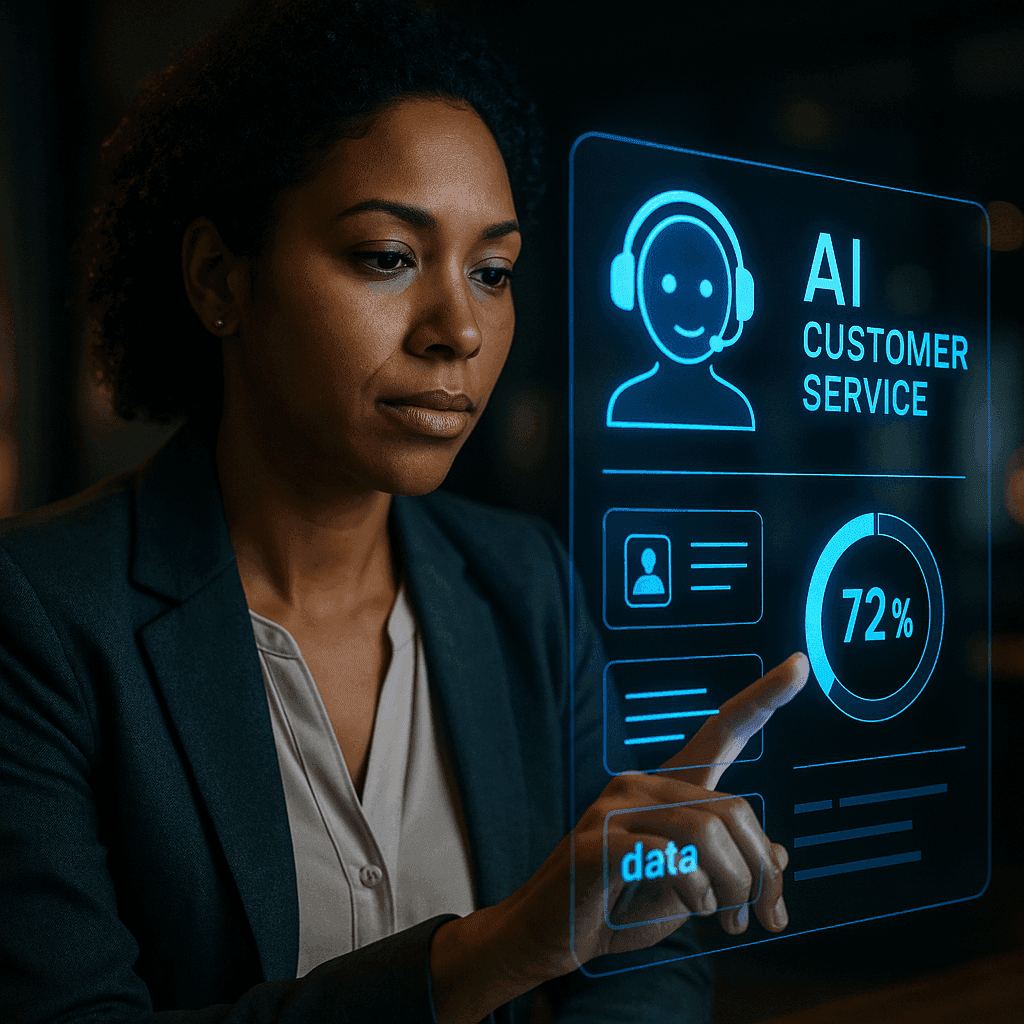What Is Artificial Intelligence? Simple Examples and Why It Matters for Business Leaders

What Is Artificial Intelligence? Simple Examples and Why It Matters for Business Leaders
Artificial Intelligence, or AI, might sound like something out of a sci-fi movie, but it’s already part of your daily life — from voice assistants to smart recommendations on your favorite apps.
In plain terms, AI is when we teach computers to “think” and solve problems in ways that seem smart — a bit like how humans do it. The big difference is that instead of being told every single step, AI can learn from data, find patterns, and improve over time.
Quick Answer: AI is a tool that mimics certain aspects of human intelligence — like learning, problem-solving, and pattern recognition — but does it much faster and at a much larger scale.
How AI Is Different From Regular Computers
A regular program works like a recipe. It follows exact instructions, step by step.
Example: If someone clicks this button, show them a message.
AI, on the other hand, can look at thousands of clicks, figure out what people usually do next, and predict the best message to show — without anyone writing a rule for every possible case.
The Three Main Levels of AI (With Examples)
Understanding the types of AI can help you see where we are now — and where we’re headed.
Level 1: Narrow AI – The Specialist Intern
- Definition: AI that can do one specific job really well.
- Examples: Siri answering a question, Alexa playing a song, email spam filters, AI that predicts customer churn.
- Business analogy: Great at execution within a defined role, but not a strategic thinker.
- Current status: Already widely used in daily life and business.
Level 2: General AI – The Adaptive Leader
- Definition: AI that can learn and understand any intellectual task a human can do.
- Examples (future potential): Could work in marketing one day, finance the next, then HR the week after.
- Business analogy: A COO who can lead any department because they can adapt, learn, and strategize.
- Current status: Still in research and development — not yet available.
Level 3: Superintelligent AI – The Visionary Mastermind
- Definition: AI more intelligent than any human in every domain.
- Examples (hypothetical): Predicting global market trends before they happen, inventing new technologies, solving massive global problems.
- Business analogy: A boardroom of the wisest leaders in history, combined in one mind.
- Current status: A theoretical concept — raises important ethical and safety questions.
Why This Matters for Leaders and Businesses
Whether you lead a small business or a global enterprise, AI can help you:
- Automate routine work so you can focus on high-value decisions.
- Analyze large datasets to spot trends and opportunities faster.
- Make smarter predictions to guide business strategy.
Today’s AI is already augmenting leadership by streamlining processes and providing insights.
Future AI will blend human creativity with machine precision.
One day, AI may be more about guiding values and strategy than issuing instructions.
Learn More About AI for Business
Want to see how AI can help your business today?
Explore our guides and tools at Voice2Me.ai — including:
Final Thoughts
AI is not magic, and it’s not here to replace humans. It’s a powerful tool — one that can learn, reason, and solve problems, often much faster and at a larger scale than we can.
The better we understand what AI can (and can’t) do, the better we can use it to grow businesses, improve decision-making, and create a better future.
Written by the Voice2Me.ai Team — helping leaders combine AI-driven intelligence with human-centric leadership.
More Articles

The CX Revolution: 65+ AI Customer Service Stats You Need for 2025
Explore how AI is rapidly transforming customer service by 2025, from lightning-fast chatbots to hyper-personalization, and why a human touch still matters.

Is AI Taking Over Customer Service? What 2025 Really Looks Like
Explore how AI is reshaping customer service in 2025, from hyper-personalization to autonomous agents, and discover the essential balance between efficiency and the human touch.